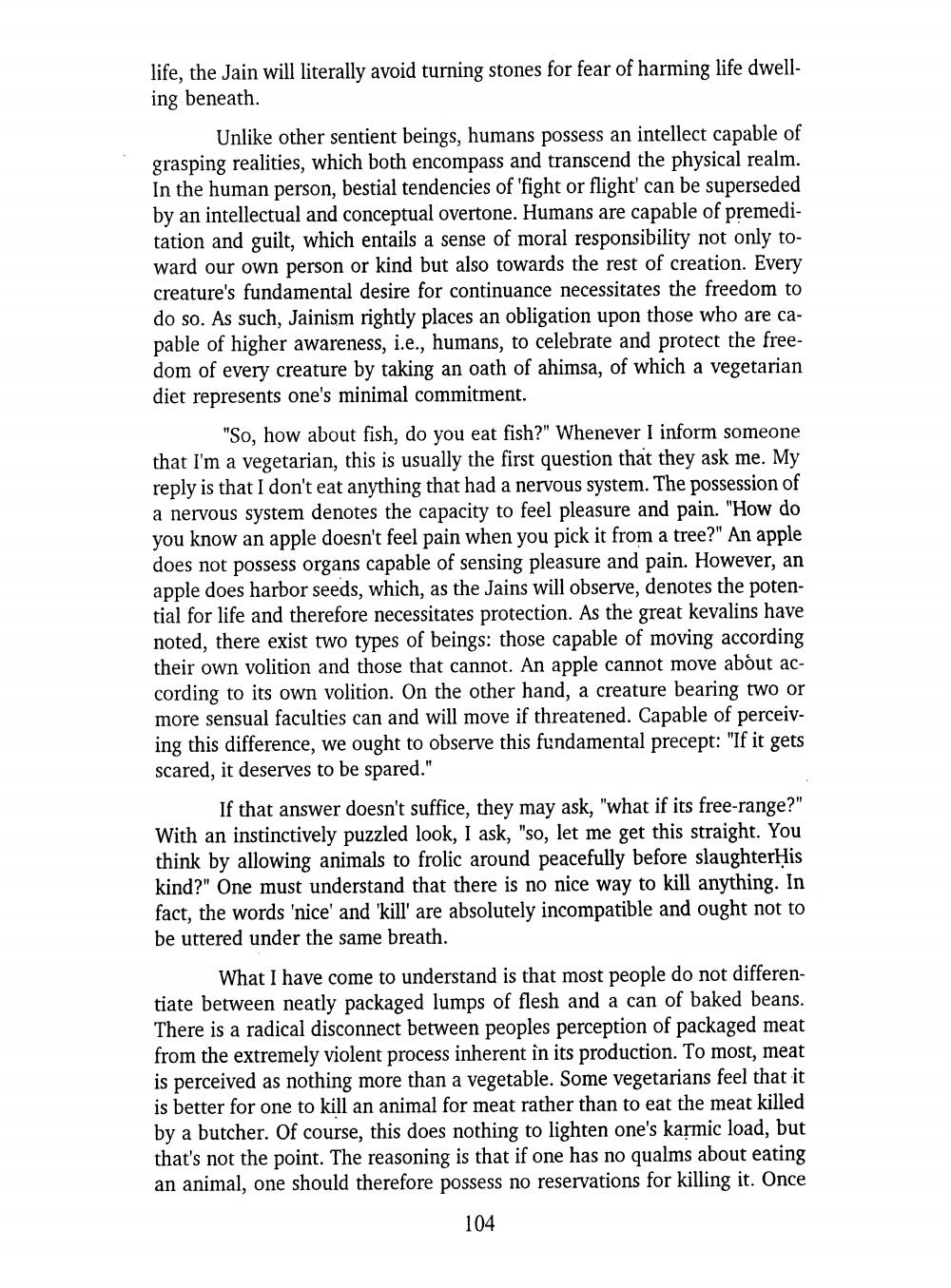________________
life, the Jain will literally avoid turning stones for fear of harming life dwelling beneath.
Unlike other sentient beings, humans possess an intellect capable of grasping realities, which both encompass and transcend the physical realm. In the human person, bestial tendencies of 'fight or flight' can be superseded by an intellectual and conceptual overtone. Humans are capable of premeditation and guilt, which entails a sense of moral responsibility not only toward our own person or kind but also towards the rest of creation. Every creature's fundamental desire for continuance necessitates the freedom to do so. As such, Jainism rightly places an obligation upon those who are capable of higher awareness, i.e., humans, to celebrate and protect the freedom of every creature by taking an oath of ahimsa, of which a vegetarian diet represents one's minimal commitment.
"So, how about fish, do you eat fish?" Whenever I inform someone that I'm a vegetarian, this is usually the first question that they ask me. My reply is that I don't eat anything that had a nervous system. The possession of a nervous system denotes the capacity to feel pleasure and pain. "How do you know an apple doesn't feel pain when you pick it from a tree?" An apple does not possess organs capable of sensing pleasure and pain. However, an apple does harbor seeds, which, as the Jains will observe, denotes the potential for life and therefore necessitates protection. As the great kevalins have noted, there exist two types of beings: those capable of moving according their own volition and those that cannot. An apple cannot move about according to its own volition. On the other hand, a creature bearing two or more sensual faculties can and will move if threatened. Capable of perceiving this difference, we ought to observe this fundamental precept: "If it gets scared, it deserves to be spared."
If that answer doesn't suffice, they may ask, "what if its free-range?" With an instinctively puzzled look, I ask, "so, let me get this straight. You think by allowing animals to frolic around peacefully before slaughterHis kind?" One must understand that there is no nice way to kill anything. In fact, the words 'nice' and 'kill' are absolutely incompatible and ought not to be uttered under the same breath.
What I have come to understand is that most people do not differentiate between neatly packaged lumps of flesh and a can of baked beans. There is a radical disconnect between peoples perception of packaged meat from the extremely violent process inherent in its production. To most, meat is perceived as nothing more than a vegetable. Some vegetarians feel that it is better for one to kill an animal for meat rather than to eat the meat killed by a butcher. Of course, this does nothing to lighten one's karmic load, but that's not the point. The reasoning is that if one has no qualms about eating an animal, one should therefore possess no reservations for killing it. Once
104




